Video games love a good explosion, but how are these spectacular effects designed?

Explosions are some of gaming’s most dazzling effects. Ever since Doom’s toxic barrels let players turn demons into soup, developers have striven to make explosions bigger, more spectacular, and more dynamic. Today, explosions appear in all sorts of forms for all sorts of purposes, whether it’s starting a revolution in Just Cause, or triggering a tactical chain reaction in Divinity: Original Sin.
In a matter of moments, explosions can change dramatically in size, shape, and color. They can be triggered by the player in all kinds of different ways, and radically alter the existing game state. But how do development studios actually tackle these stunning, violent and oh-so fleeting effects?
Chris Judkins is principle VFX artist on Just Cause 4, which aims to continue the series’ tradition of offering plentiful explosive potential. Judkins states that a good explosion starts with research. “Explosions act drastically different depending on what’s blowing up,” he says. “Fuel and gasoline produces dark, churning, slow-burning smoke that lingers for a long time, while propane burns fast, bright, and violently. Keeping these factors in mind and staying consistent throughout the game helps make the explosions feel grounded in the world.”
Regardless of what kind of explosions a VFX artist is designing, a successful combustion is always founded upon the engine’s particle system. “Particles determine not only the look of an explosion, but also details the movement,” Judkins continues. “Even in a realistic-looking game we make a lot of stylistic decisions to help the explosions have more impact and wow factor, just like in Hollywood movies.”
This story is from the {{IssueName}} edition of {{MagazineName}}.
Start your 7-day Magzter GOLD free trial to access thousands of curated premium stories, and 9,000+ magazines and newspapers.
Already a subscriber ? Sign In
This story is from the {{IssueName}} edition of {{MagazineName}}.
Start your 7-day Magzter GOLD free trial to access thousands of curated premium stories, and 9,000+ magazines and newspapers.
Already a subscriber? Sign In

"The War Within itself has kept me coming back most evenings too"
WORLD OF WARCRAFT remains my jailer, and I couldn't be more pleased about it
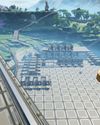
OK BUILDER
SATISFACTORY is the new titan in building and crafting games

HELL YES
DIABLO IV: VESSEL OF HATRED is a transformative expansion
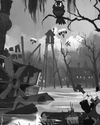
MOUSE: PI FOR HIRE
This mouse wants to be more than just a gimmick

WINDBLOWN
Dead Cells dev's new roguelike has me afraid for my free time
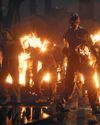
NO MORE ROOM IN HELL 2
As the zombie horde surrounded me just moments after taking down my two remaining teammates, the writing was really on the wall. Armed with just a chef's knife, it was clear I stood no chance, but I was going down swinging, hoping for a miracle... it didn't come.

OWNED BY STEAM
VALVE cordially reminds you that your games aren't yours

CURSE OF THE AZURE BONDS
These classic games haven't aged badly, but I sure have.
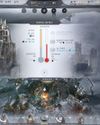
DEEP FREEZE
Endure a blizzard of tough choices and rough consequences in FROSTPUNK 2
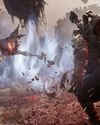
NEW HORIZONS
Building up REMNANT 2 outside the live service game grinder